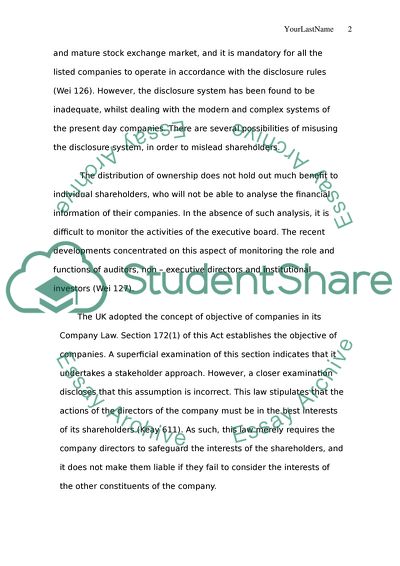Cite this document
(The UK Corporate Governance System Research Paper - 3, n.d.)
The UK Corporate Governance System Research Paper - 3. Retrieved from https://studentshare.org/law/1732738-company-law
The UK Corporate Governance System Research Paper - 3. Retrieved from https://studentshare.org/law/1732738-company-law
(The UK Corporate Governance System Research Paper - 3)
The UK Corporate Governance System Research Paper - 3. https://studentshare.org/law/1732738-company-law.
The UK Corporate Governance System Research Paper - 3. https://studentshare.org/law/1732738-company-law.
“The UK Corporate Governance System Research Paper - 3”, n.d. https://studentshare.org/law/1732738-company-law.


